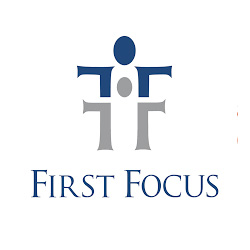Utah leaders should be investing in child care professionals through paid training and educational opportunities, refundable tax credits for people who provide care and learning opportunities directly to young children, and other direct incentives that reward early care and education professionals for committing their time and energy to children’s healthy development.
Without bold policies that support and uplift the people who work most closely with young children, we can never build a child care system that offers the requisite diversity of choices for Utah families, while meeting the intense development needs of our next generation of Utah leaders.
Last month, we shared our take on the general state of child care in Utah, addressing the unique opportunity – and desperate need – to strengthen this critical sector. That blog post, “It’s Time for the Child-Centered Child Care System that Utah Families Deserve,” asserted that “A child-centered early care and education system would be driven by committed and caring providers who are appropriately compensated, and thoughtfully trained, for their invaluable work.” This post focuses on that important system feature.
Currently, in our state, the people who perform one of the most important jobs in our society – ensuring the safety and healthy development of young children while their families are contributing to the economy as part of the workforce – are underpaid, overworked and taken for granted. By not engaging in proactive efforts to incentivize involvement in the early care and education sector, Utah leaders are passing on perhaps the best investment opportunity available to our state.
In a seminal study that spanned decades, the Federal Reserve Bank of Minneapolis showed how low-income children who participated in a quality preschool program were likely to earn substantially more than their non-participating peers, in their mid-20s, and were far less likely to be arrested. This study, and many others since, have shown that the return on investment for early care and education programs is sizeable. Researchers estimate that our communities can realize an ROI of anywhere between $4 and $16 for each dollar invested in early education programs, a yield that is realized through increased economic activity, decreased reliance on governmental benefit programs, and reduced expenses via the criminal justice system.
And yet, in Utah, the workforce that would make this type of incredible return on investment possible, is too often marginalized and ignored by policymakers. Except, that is, when making regulatory demands that are often completely out of step with even the most generous financial incentives available to child care professionals.
Currently, most state childcare policy focuses narrowly on ensuring that early care and education providers meet strict health and safety guidelines. This is particularly true now, when child care settings are subject to additional public health requirements due to the coronavirus epidemic. The governmental support that is offered to providers, to assist them in meeting those guidelines, varies widely across the state. Some childcare providers report positive experiences with individual licensing agents, who assist them in rectifying minor safety issues in their childcare settings. Other providers share stories of unreasonable and sometimes culturally-inappropriate governmental demands, made by public servants who offer no subsequent assistance.
In addition, providers increasingly are asked to meet educational demands that, while based on strong early childhood research, also happen to be unrealistic and unfair given the indisputable systemic realities of the child care marketplace. While it is true that increased educational attainment among early care and education professionals has been correlated with positive outcomes for the children in their care, it is also true that the vast majority of early care and learning professionals who work directly with children have neither the time, energy or financial resources to pursue a traditional college degree.
Nonetheless, the highest rung on the Utah Office of Child Care offers financial incentives to child care professionals to help them “move up” this Career Ladder is reserved for individuals with a doctorate degree. While a limited number of people in Utah’s early care and learning sector have doctoral degrees, they are almost exclusively employed in administrative or college-level teaching positions. According to the state-sponsored Early Childhood Career Ladder, it would seem that the pinnacle of career achievement in the sector almost never involves actually working with young children.
The Utah Office of Child Care offers financial incentives to child care professionals to help them “move up” this Career Ladder through ongoing professional development. Individuals receive a modest one-time stipend when they achieve a new level on the career ladder. Recognition for those achieving a Child Development Associate (CDA) credential is $300. The largest incentive, $2,000, is reserved for professionals when they receive their doctoral degree (a feat achieved by fewer than 2% of all people in the United States). It is unclear how rewarding early care and learning professionals for moving out of child care settings will help to alleviate our current child care shortage.
Many of the people who work in Utah’s child care sector already make incredible personal and financial sacrifices to care for and educate the young children in their communities. Very few people in the child care sector engage in this critical work because it is lucrative. Rather, most child care providers perform countless hours of uncompensated work because it results in better outcomes for the children and families they work with.
During the last year school, one childcare center owner in Northern Utah regularly drove two of her special needs students to their half-day kindergarten classes, because the local school bus won’t cross district boundaries to pick them up. She also volunteered to text the kindergarten teacher each day with an update on the children’s emotional state before arriving at school.
Another provider, who runs a home-based child care setting in Carbon County, calculates that, after her aides are paid and the necessary materials purchased, she makes about $4 an hour. Her long hours are extended by the fact that she makes special exceptions for early drop-off for some parents (such as the single mother who works the sunrise shift for a local mining company) while also participating in trainings at night.
It is time to stop taking the hard work and tireless commitment of so many child care providers for granted. Rather than focus exclusively on health and safety regulations, unreasonable professional development requirements, and overly narrow definitions of “quality,” the state must begin to treat the professionals on which our child care system is built, as an exhaustible resource that demands careful tending.
It’s not enough to offer training at reduced rates, or even for free, through Care About Child Care offices and the excellent T.E.A.C.H. program. Child care professionals need to be able to pay substitute teachers to care for young children while they are participating in professional development opportunities. It’s insufficient to provide a small financial incentive every time child care workers achieve a new “rung” on an Early Childhood Ladder that culminates somewhere beyond reality for most child care workers. The state should also create refundable tax credits for people working in the early care and education field, structured to reward most richly the people who work most closely with our young children, and regardless of the provider’s ability to meet the government’s culturally-exclusive definition of quality.
If we are serious about the health, safety and successful development of the children of our state, we need to get serious about how we attract, acknowledge and advance the very people who are professionally responsible for those children, day in and day out.






